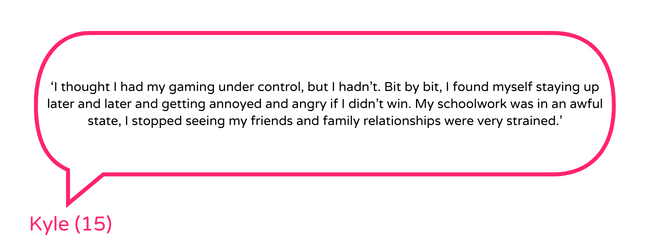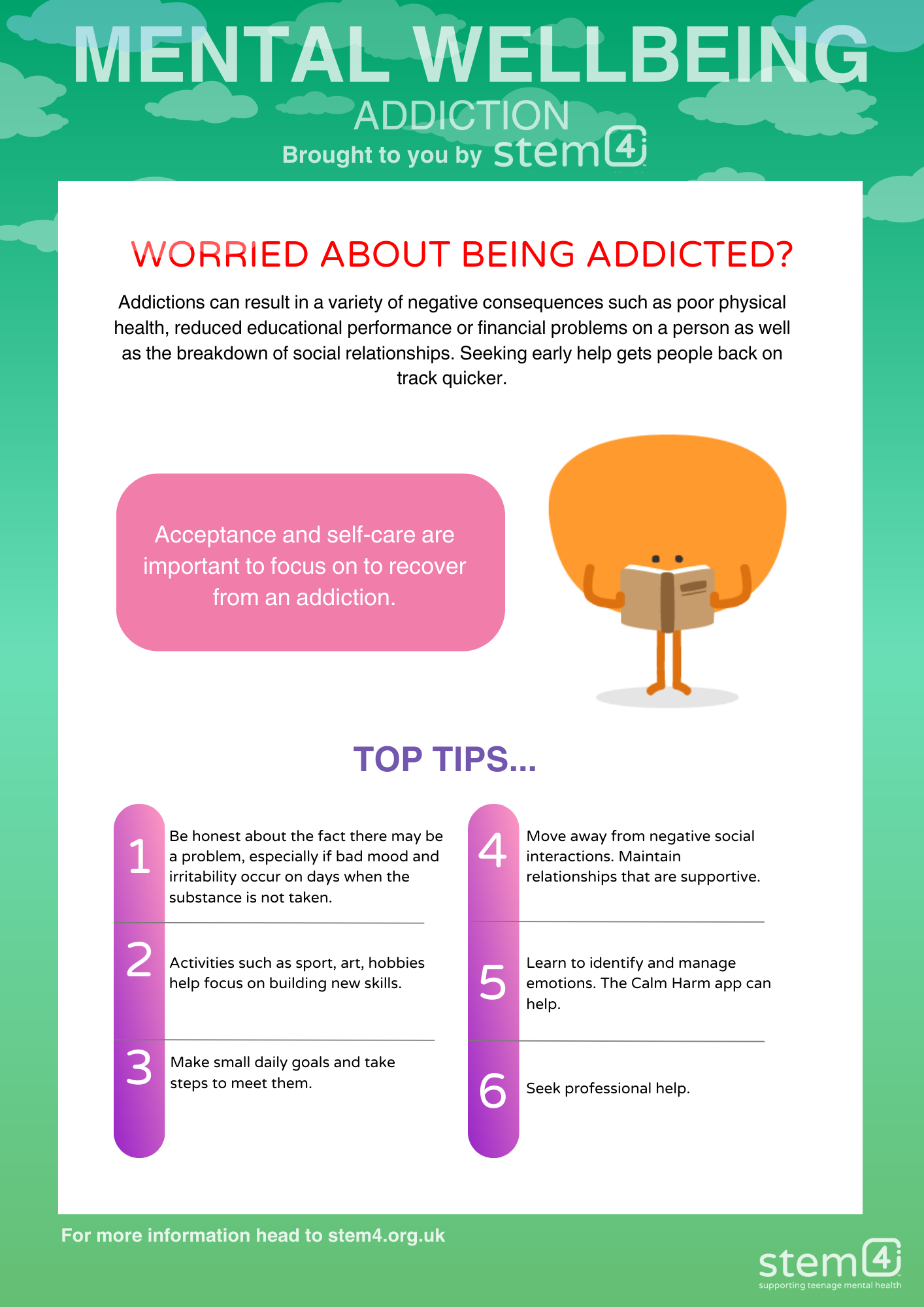Addiction
What is addiction?
Many teenagers face some form of addiction at some point in their life. Although addiction to drugs is most commonly reported – alcohol and nicotine in particular – there are a number of other substances and activities or behaviours that create the same sense of dependency and resistance to withdrawal. These include gaming, gambling, sex, pornography, food, exercise, the Internet and other technology such as mobile phones, work and compulsive buying.


How do I know if a person has an addiction?
Addiction is a clinical condition. It is different to overuse of a substance or activity/behaviour. It has a clear craving component, is compulsive with increasing tolerance to what the original effect was, it affects the individual in a negative way and the person feels out of control of the behaviour and is unable to stop it even with effort. Secrecy, deceit, huge swings in mood can all be associated with addiction. Withdrawal symptoms occur if the behaviour is discontinued for even a short period of time.
There are various factors contributing to addiction including genetics, brain chemistry, life experiences, individual characteristics, social setting and upbringing. Addiction responds well to a consistent and targeted treatment approach and needs monitoring for relapse. Addiction can occur for a substance – for example, alcohol or an activity/behaviour, for example, gaming or gambling.

